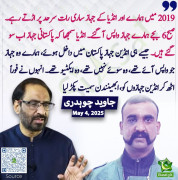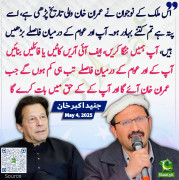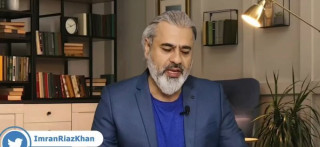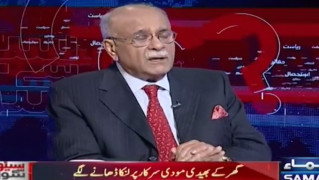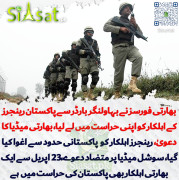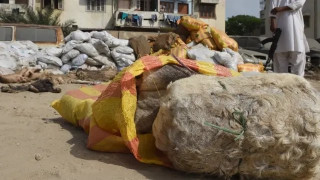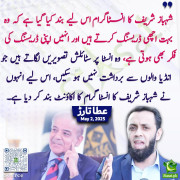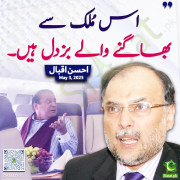Re: Islamic Banking in Pakistan
Islamic banking is a fast-growing trend in Pakistan
By Pamela Constable, Saturday, April 30, 3:16 PM
ISLAMABAD, Pakistan — When it comes to money, Pakistan has a troubled image. Its business establishment is known for chronic tax evasion and loan defaults, and many of its politicians have been implicated in corruption scandals that exposed their cozy relations with bankers and bureaucrats.
But Islam, the national religion, offers an alternative form of financing that claims to be both more ethical and more equitable. Islamic banking represents only 8 percent of banking activity nationwide, but it is a fast-growing trend that appeals to many Pakistanis who want to be financially successful but also religiously correct.
Business experts say the burgeoning popularity of Pakistan’s Islamic banks — where deposits have gone from about $3 billion to nearly $4 billion in the past year — reflects both a reaction to the turmoil afflicting Western financial systems in recent years and a surge of religious feeling in an overwhelmingly Muslim society in which many people believe their faith is under assault from the West.
“Islamic banks have existed on the fringes of the banking industry for many years, but the global financial crisis has brought them into the limelight,” said a recent report in the Business Recorder, Pakistan’s daily financial newspaper. Today, it said, Islamic banking is “in fashion” and has “earned a shine that continues to attract funds.”
Meezan Bank, the largest of a half-dozen Islamic banks in Pakistan, draws Muslim consumers to its 54 branches by promising “the best of both worlds.” Its brochures advertise quick car loans that are “halal,” or in accordance with religious rules, and new-home mortgages that are “riba-free,” meaning that no interest is charged.
“Interest is a curse that must be eliminated from society,” said Irfan Zulqernain, a Meezan officer who has an MBA and a vision of Islam as a socially transformative force. “We don’t treat money as a commodity, which just makes a few people richer and everyone else poorer. Our way generates economic activity and spreads money throughout society.”
Islamic finance is based on a system of asset leasing and partnerships rather than outright moneylending, which Islam bans. The bank is allowed to turn a profit, but it does so by charging extra fees rather than interest — a distinction that critics say is virtually meaningless and intended solely to make Muslim customers think they are doing the right thing.
Religion as selling point
Banks are not the only businesses to capitalize on the new religious mood among consumers. More and more products are labeled “halal” even when there is no religious blessing involved. At a leading bookstore here in the capital, one of the hottest-selling items is a digitalized miniature version of the Koran that sells for $80.
“This is a precious object for us, and now it as easy to use as a mobile phone. You can just press a button and listen to any verse,” said Samira Imran, a customer who was buying one for her mother. “Our parents like to recite the Koran all the time, but this is a way to connect the new generation as well.”
A nearby shop offers a collection of stylish abayas, the dark cloaks worn by conservative Muslim women, going for up to $200. Most Pakistani women who are public figures still favor the typical South Asian ensemble of tunic and trousers, but a growing number of cloaked women can be seen in Islamabad’s shopping centers and on its campuses.
“In the past, many women in Islamabad didn’t even wear head scarves, but now more are inclined to Islamic dress,” said the shop manager, Zubair Shah. “There are many negative trends in our society, so perhaps they feel more secure.”
Like the abaya, the Islamic financial system is an import from the Middle East, and its guidelines are spelled out by clerics. A booklet from one Islamic research institute describes it as the philosophy of a “morally directed economy” in contrast with the “morally neutral” organization of capitalist societies.
Officers at several Islamic banks in Islamabad said that instead of paying penalties for late payments, customers are asked to donate to religious charities. However, several Islamic banks in other areas of Pakistan have come under official scrutiny for gifts to charities with possible links to Islamic extremist groups.
A burgeoning market
For borrowers from Islamic banks, the relationship can also be intrusive. The banks, which own assets outright until full payment is made, ask more questions and exert more control than non-Islamic financial institutions. If a customer finances a car, an Islamic bank will install a tracking device to make sure it is not stolen or abandoned.
Although some conventional bankers here remain skeptical of Islamic financing, which they describe as merely “rebranding,” others have been quick to see a potentially lucrative market. Several large Western-based banks in Pakistan now offer “sharia-compliant services,” as well as conventional consumer and business loans.
Some business owners said they chose Islamic financing for nonreligious reasons, such as easier qualification criteria and reduced financial risk. Still, they said, it is reassuring to know they are abiding by their religion.
“Most of us don’t have detailed knowledge of what is Islamic or un-Islamic,” said Naeem Burney, a Meezan Bank client who imports industrial chemicals. “There may be a gray area in how a bank determines its profit, but if the scholars have declared this to be Islamic, then at least you don’t have any doubt.”
2011 The Washington Post Company
http://www.washingtonpost.com/world/in-pakistan-islamic-banking-is-a-fast-growing-trend/2011/04/29/AFlF2iMF_print.html




